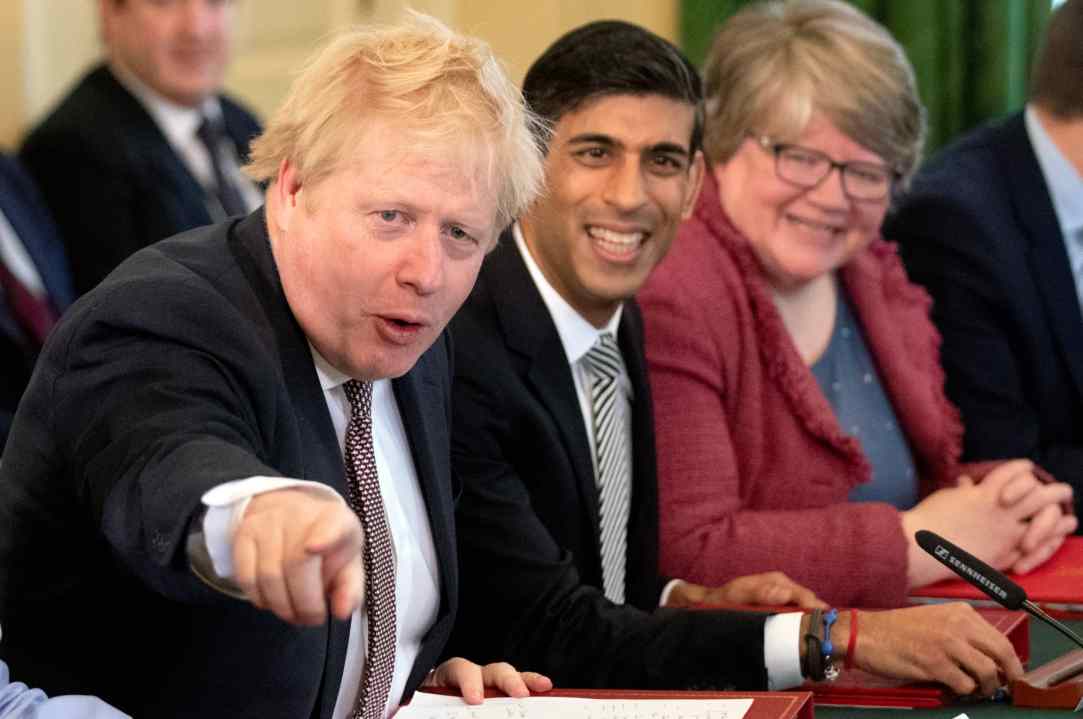Westminster is ablaze with rumours about a long-awaited government reshuffle. Half the lobby think it’s happening; half of them insist it’s not. Scraps of information are compared and scrutinised in pubs and bars across Whitehall; Whatsapps blaze with talk of three line whips and special advisers cancelling leave. One thing’s for certain: tomorrow will be an excellent time for making phone calls to ambitious Tory MPs from withheld numbers…
A good reshuffle can re-energise a flagging regime; a bad one risks causing confusion and discontent. Examples of the former include Churchill bolstering his ranks in 1942 or Thatcher’s purging the wets in 1981. Cases of the latter are (sadly) more frequent and can be said to include Thatcher mishandling Howe in 1989 and Blair appointing his fourth Home Secretary in five years in 2006.
All too often, forgetful Prime Ministers are distracted by placating the big beasts to notice the fate of minnows in the junior ministerial ranks. Back in 2012 David Cameron was reported to be so ‘distracted’ at the end of a busy day of chopping and changing that he ‘failed to catch what Lord Hill was saying to him when they met.’ Warned he was late for a photocall, the Prime Minister left the room telling the education minister to ‘carry on the good work,’ leaving him with little choice but to remain in office.
Tony Blair meanwhile interrupted the birthday party of Liam Byrne’s son in 2005 to offer him a job at the department of trade and industry, only for his chief of staff to call ten minutes later and redirect him to health instead. Then again Blair had form in this department – in May 2003 he inadvertently appointed Chris Mullin to replace a minister who resigned over Iraq after Blair forgot that Mullin had also voted against the war.
A year earlier he had, in the words of Damian McBride: ‘forgot Home Office minister Angela Eagle existed, gave someone else her job and effectively sacked her from the Government by mistake – and without informing her.’ German-born Gisela Stuart later recalled that the only time Blair ever managed to pronounce her name properly was when he sacked her.
His successor was, sadly, little better. Poor Malcolm Wicks was meant to join Gordon Brown’s Cabinet in 2007 but during the excitement the post-it note bearing his name fell on the floor and was trampled by a special adviser. By the time anyone noticed, the reshuffle was finished and he was out. In the same reshuffle, Brown made Meg Munn Minister for Women and Equalities – before realising he had already appointed his full allowance of ministers and couldn’t put any more on the pay role. Munn kept her post but was informed she was not to be paid – a move that did not go down well with female MPs or journalists the next day.
Civil servants will no doubt be glad that they no longer play a role in such shenanigans. Winston Churchill’s former aide Jock Colville, then just a 25 year-old assistant private secretary, recalled in his diaries that: ‘It was my difficult job to explain on the telephone to Kenneth Lindsay, the Duke of Devonshire, Lord Denham and Captain McEwen that their services were no long required.’
Churchill’s successor Clement Attlee preferred to deliver the news to underlings in person. When John Parker, MP for Dagenham, became the first member of his administration to be sacked, Parker had the temerity to ask Attlee why. Attlee, notably taciturn, replied bluntly ‘Not up to the job.’
Harold Macmillan seemed to almost revel in the bloodshed in 1962 when he oversaw the so-called ‘Night of the Long Knives’ in which Macmillan sacked a third of his Cabinet. An indignant Lord Kilmuir complained to Supermac that his his cook would have more notice; Macmillan replied that good cooks were harder to find than good Lord Chancellors. Enoch Powell remained unconvinced about his premier’s professions of sorrow, noting drily: ‘I dare say Henry VIII might have told you afterwards how much he regretted sending people to the block.’
It was Gladstone who claimed a Prime Minister must be a ‘good butcher.’ Tomorrow we could find out if Boris has learned to carve the joint.








Comments